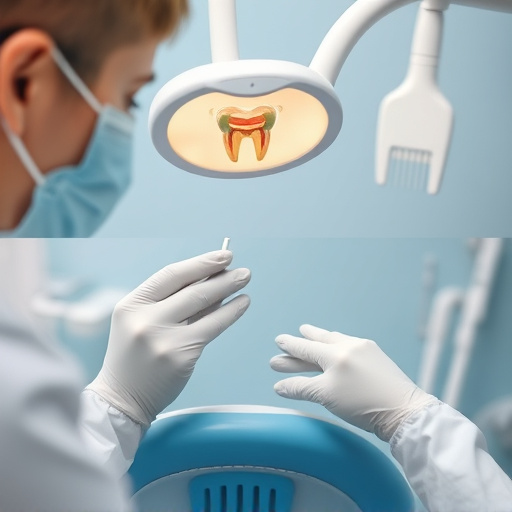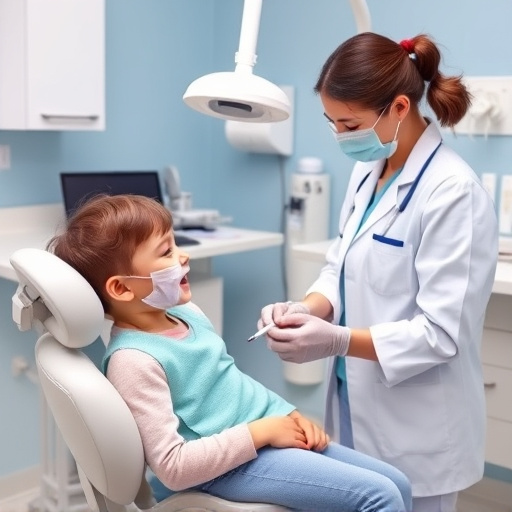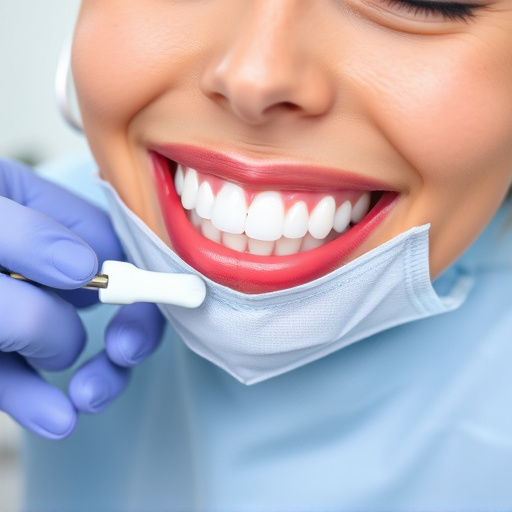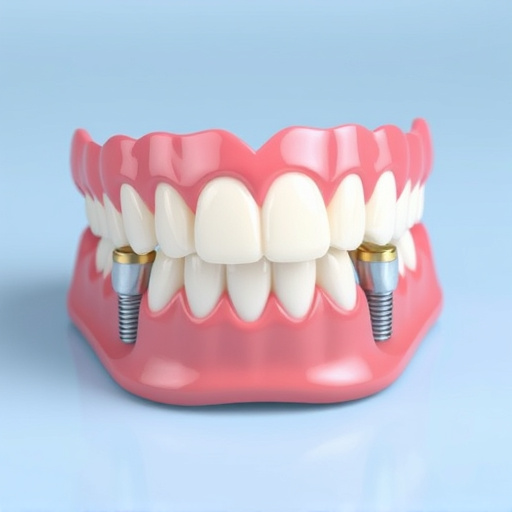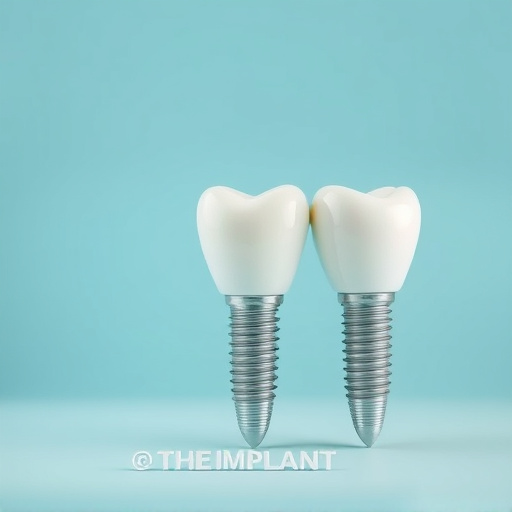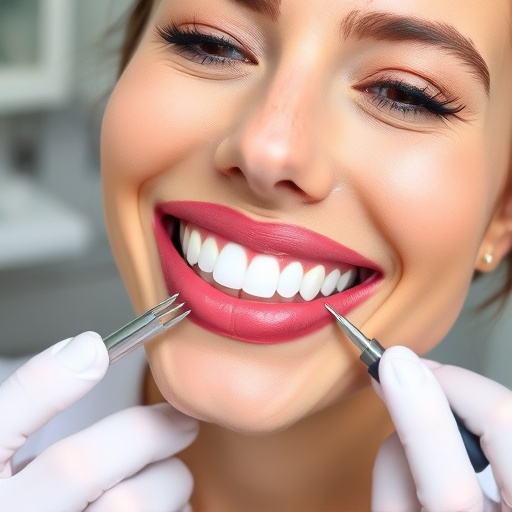The holistic dental approach emphasizes the connection between oral health and overall well-being, addressing root causes rather than just symptoms. It integrates natural treatments, lifestyle changes, nutrition, stress management, and environmental factors to offer comprehensive care. By prioritizing safety, minimizing invasive procedures, and using biocompatible materials, this method promotes tissue regeneration and overall vitality. This holistic approach considers the interplay between oral and systemic health, offering natural remedies, nutritional counseling, and stress management alongside traditional dentistry for long-term well-being.
In the realm of dental care, a holistic approach prioritizes your overall health and well-being. This method treats teeth and gums not as isolated components but as integral parts of your entire body. Understanding holistic dental principles involves recognizing the connection between oral health and systemic wellness. This article explores safety measures, integrates whole-person healing practices, and delves into how this innovative approach can revolutionize your dental experience, emphasizing safety and comprehensive care.
- Understanding Holistic Dental Principles
- Safety Measures in Holistic Dentistry
- Integrating Whole-Person Healing in Practice
Understanding Holistic Dental Principles
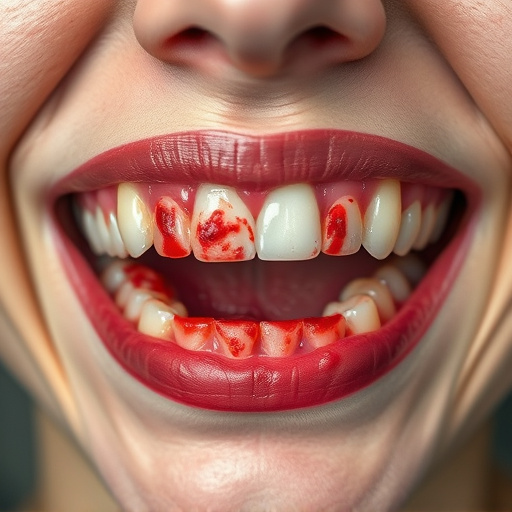
The holistic dental approach prioritizes overall health and well-being, viewing teeth and gums as integral parts of a larger system rather than isolated components. This philosophy emphasizes that oral health significantly impacts overall physical and emotional wellness. Unlike general dentistry which often focuses on treating symptoms, holistic dentistry aims to address the underlying causes of dental issues to facilitate whole-person healing.
Instead of just performing tooth extractions for infected teeth, a holistic dentist might recommend natural treatments and lifestyle changes to support the body’s inherent ability to heal itself. They consider factors like nutrition, stress levels, and environmental exposures that can contribute to oral health problems. By integrating these perspectives, the holistic dental approach offers a more comprehensive strategy for maintaining optimal oral health and promoting overall vitality.
Safety Measures in Holistic Dentistry

In a holistic dental approach, safety is paramount, focusing on minimizing invasive procedures and prioritizing natural healing processes. This means that instead of relying solely on drugs or surgery, practitioners consider the entire person—not just the affected area. For instance, rather than resorting to tooth extractions immediately, dentists might explore options like pain management techniques, natural antimicrobials, or gentle adjustments to the patient’s bite through occlusal therapy.
This approach also extends to the materials used in restorative dentistry, such as opting for biocompatible dental crowns that are free from harmful chemicals. By integrating evidence-based practices and natural solutions, holistic dentistry seeks to prevent further damage, promote tissue regeneration, and foster overall well-being, ensuring a safer and more comprehensive healing experience.
Integrating Whole-Person Healing in Practice
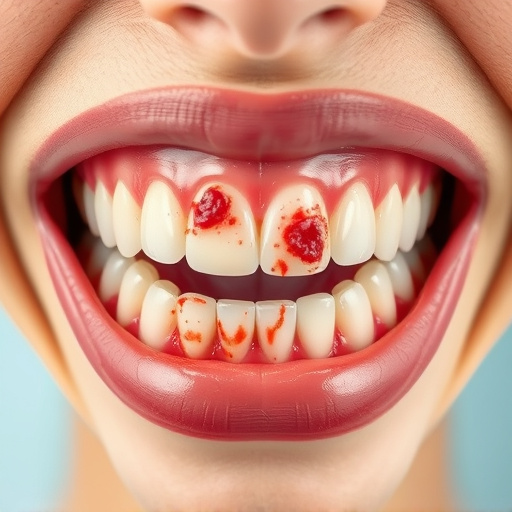
In adopting a holistic dental approach, dentists move beyond addressing oral health alone and integrate whole-person healing into their practice. This means considering the interconnectedness between oral and overall health, recognizing that what impacts one can affect the other. For instance, chronic systemic conditions like diabetes or cardiovascular disease can increase the risk of dental issues. Conversely, an unhealthy mouth can contribute to broader health problems, such as respiratory infections and even heart disease. By embracing this holistic perspective, dentists can offer more comprehensive care, addressing immediate dental needs while also fostering long-term overall well-being.
This shift in approach encourages practitioners to explore various therapeutic modalities, including natural remedies, nutritional counseling, and stress management techniques, alongside traditional treatments like dental implants, clear aligners, or dental bonding. Integrating these whole-person strategies not only empowers patients with knowledge to take charge of their health but also creates a more harmonious relationship between dentist and patient, fostering trust and collaboration in the healing process.
A holistic dental approach, emphasizing safety and whole-person healing, offers a transformative perspective on oral care. By integrating principles that consider the body’s interconnectedness, this method prioritizes patient well-being beyond just treating symptoms. Through advanced safety measures and an emphasis on holistic healing, dentists can provide comprehensive care that addresses the root causes of dental issues, promoting long-term health and balance throughout the entire body. Embracing this approach ensures a future where dental practice is aligned with overall wellness, fostering a healthier and more vibrant community.



